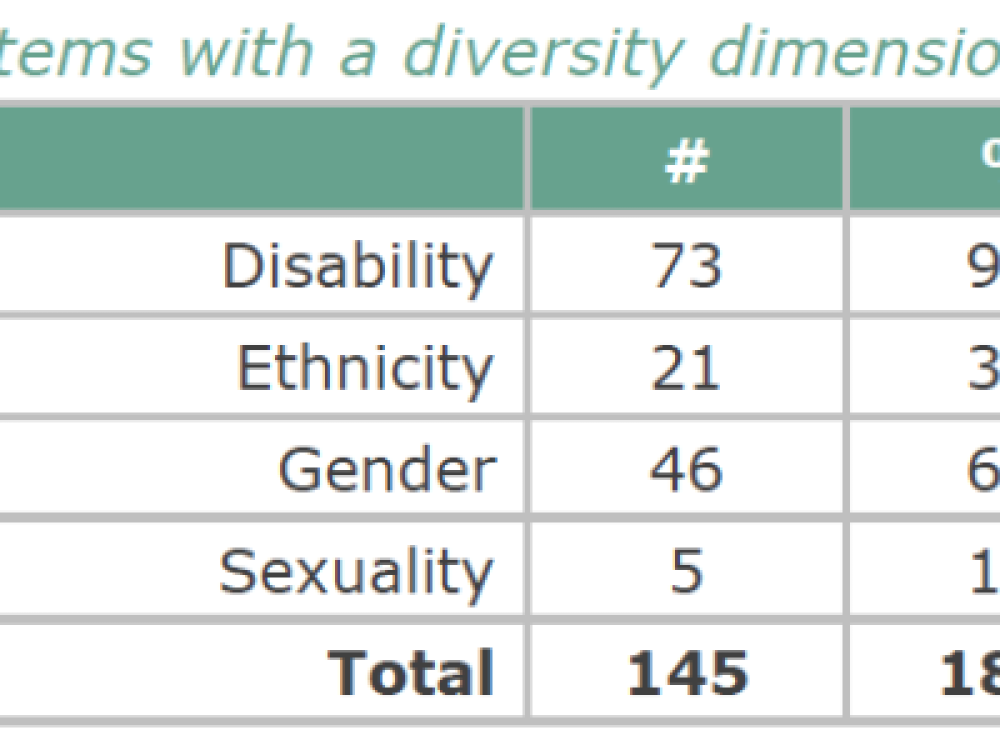There is much debate about the future of public service media. Set up by the Irish Government in September 2020, the Future of Media Commission investigates how public service broadcast, print, and online media can be both delivered and sustainably funded over the next decade. Through a series of online “thematic dialogues”, stakeholders have offered their perspectives on key issues including: the nature of public service provisions, funding models, public interest journalism, and diversity and inclusion in the media sector.
In that context, it is interesting to see the results of RTÉ’s Have Your Say survey, part of a process that the state broadcaster is required to undergo every five years. The research consisted of a National Survey (NS) and a Public Consultation (PC), both of which ran between February and March of this year and received a massive uptake with over ten thousand respondents taking part.
The public was first asked about whether they regularly watch or listen to RTÉ content, or avail of any other service that RTÉ provides. Results show that daily usage varies depending on the medium, with 54 per cent of the NS and 53 per cent of the PC watching RTÉ daily, 36 per cent of the NS and 47 per cent of the PC listening daily. Lastly, 34 and 38 per cent of the NS and PC respectively read RTÉ news, blogs or other online content every day.
Overall, there was a favourable attitude towards public service media in general, with 72% of the Public Consultation agreeing that ‘audiences should have access to a broad range of high-quality content that is from Ireland’. RTÉ itself did not fare so well, however, with 57% of the same group disagreeing with the statement that ‘RTÉ is an organisation people in Ireland can be proud of.’ Both surveys placed high importance on RTÉ continuing to provide free to air television and radio services, with 71 per cent of the NS and 72 per cent of the PC in agreement.
Respondents were then asked to rank the importance of seven principles intended to guide how RTÉ operates. Of these, ‘being independent from political, commercial or other influences.’ was ranked highest by both the PC and NS, with 49 and 42 per cent respectively. The NS ranked ‘being for everyone and available to everyone’ as its second highest-rated principle, while the PC placed ‘accountable to the public and stakeholders’ in this position. Respondents also had the opportunity to suggest principles of their own. Of these, the highest rated was ‘balanced, fair, honest, programming and reporting’, with 30 per cent of the PC mentioning this.
Each principle was then broken down into more detailed statements, with respondents asked to rank the importance ensuring RTÉ achieved a specific principle. On the topic of independence, ‘RTÉ providing high quality national and international news and current affairs that is accurate, fair, impartial and objective’ was rated extremely highly, scoring 96 and 97 per cent in the NS and PC respectively. For ‘acting in the best interest of society’, both surveys agreed that it was important for RTÉ to facilitate debate on views and ideas that contribute to a democratic society.
When asked about diversity, 83 per cent of the NS and 74 per cent of the PC felt that it was important for RTÉ to create content that reflects the diversity that exists in Ireland. However, both groups afforded a higher priority to the idea that RTÉ should provide a platform for Ireland’s artists, musicians and culture, with 90 per cent of the NS and 86 per cent of the PC agreeing that it was in some way important.
While these are just a small selection of the findings of the Have Your Say campaign, the full results only serve to confirm the importance of an RTÉ that engages in a wide range of activities as part of its role as Ireland’s state broadcaster. The people have spoken, and they want an RTÉ of robust and objective news coverage, as well as an organisation that facilitates an inclusive and progressive society.
The full report on the Have your Say survey can be read here.




